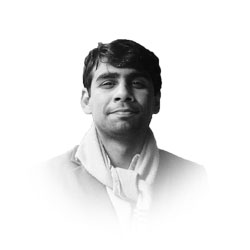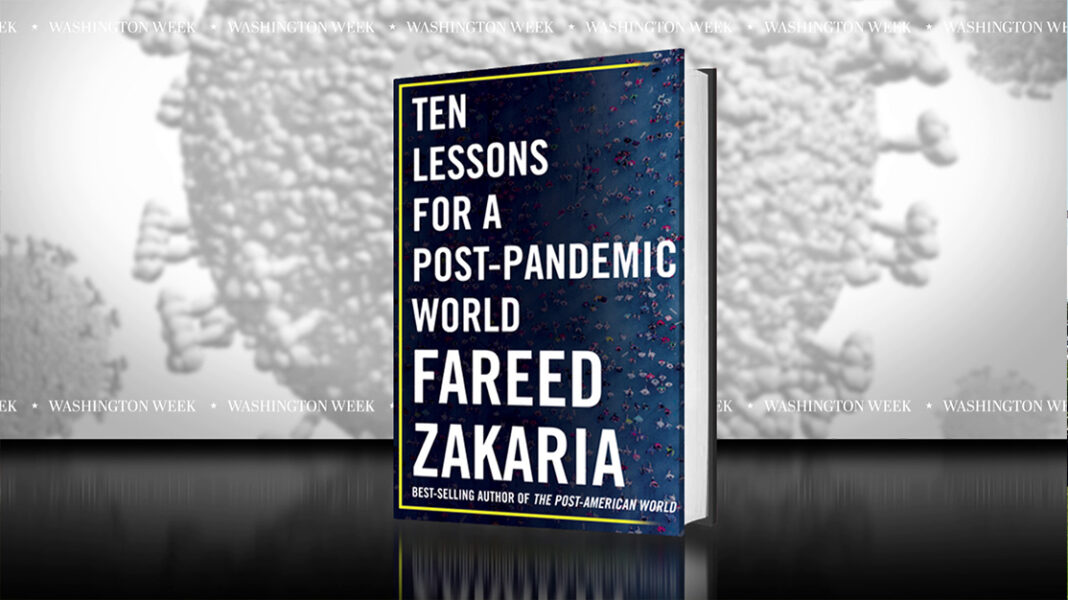By: Wali Ejaz Nekokara

Books are written to spread enlightenment and to apprise people of various perspectives of particular phenomena. The perspective given in a book may not be 100pc true but it can make the reader think. Fareed Zakaria is an Indian-American journalist, political commentator and prominent writer. The reviewed book of Fareed Zarakia is undoubtedly a marvelous bid to enhance people’s especially students’ knowledge and analytical skills. For the CSS aspirants, this book can have significant importance. This book comprises ten chapters and each chapter possesses unavoidable facts and figures coupled with meticulous analysis. Presenting summaries of all chapters will be an arduous job and the space it demands will exceed the words limit. So, it will be useful to present the ten chapters in ten points to make it more simple and understandable.
In the first chapter, the writer talks about five important points. a) He maintains that Pandemic has left countries alone and has compelled them to rely on their own. The countries which were once inextricably linked through trade and economic interdependence are bound to focus on their survival. Pandemic has taught the lesson of self-sufficiency. b) This world is “fast, open, and unstable” and this is insurmountable to bring stability to anything so open. It is not possible to attain stability, openness, and fastness at the same time. c) Human development has posed a serious threat to nature. According to the UN 2019 report, ‘Human actions have badly altered the 75% of total land. d) We can bring change by installing an “anti-fragile system”, giving importance to “resilience and security” along with other economic activities, less meat consumption, and a robust health system.
In the second chapter, the writer says that pandemic has scuttled the American sense of complacency about their health system. Delayed response and poor management have played an important role in the dissemination of the virus. He criticizes the notion that the size of government is imperative to make the political system strong. He holds that the quality of government matters more than anything else. Efficient functioning, competence, and trust determine the quality of a government. Countries like South Korea, Taiwan, Singapore, and Hong Kong performed exceptionally well in coping with the pandemic due to the quality of government.
In the Third Chapter, the writer hashes out a changing political priority of Americans. A considerable portion of Americans is showing an inclination to socialism. People like Barnie Sanders and Jeremy Corbyn are proponents of the socialist school of thought. One of the important things is that they are not in favor of pure socialism rather want to imitate some of the ingredients such as “greater government’s investment”, “expanded safety nets”, “Green new deal” and “higher taxes on rich”.
In Forth Chapter, the writer sheds light on the importance of experts and their advice. Those countries whose leaders did not pay serious heed to medical experts witnessed the destructive impacts of the pandemic. Donald Trump, Jair Bolsonaro, and Boris Johnson showed a reckless attitude towards pandemics and experts. Then, adherents also followed their path of reluctance to embrace reality. According to a study conducted by some political scientists shows that “Republicans were less likely to comply with Center for Disease Control’s recommendations”.
In Fifth Chapter, the writer augurs the digital revolution. He thinks that the digital economy has overshadowed the material economy. Artificial Intelligence is more likely to play an astonishing role in the field of medicines and driving.
In Sixth Chapter, the writer talks about urbanization. He maintains that even though outbreaks travel city to city at a rapid pace but he also says that urbanization is inevitable. The Havard economist Edward Glaeser points out that “US cities faced the worst situation in the 1970s and the future of cities was bleaker than today”. Despite all the difficult times, urbanization kept marching inexorably. Cities will be getting more and more acceptance. According to the UN’s estimate, “Two-thirds of will live in cities by 2050”.
In Seventh Chapter, the writer highlights the issue of inequality. He says that inequality will endure. There is no doubt that countries seriously struggled to grapple with inequality and the gap between the richest and poorest countries was shrinking. But pandemic has once again widened the gap. China and India’s economic growth played a paramount role in the decline of global inequality. He further says that the world will be divided into two places. A place having a good health system and a place having a poor one. Big companies will be getting bigger and the internet will help big companies to sustain their monopolies. In the USA, Racism and the government’s marginalizing policies will accelerate inequality.
In Eighth Chapter, the writer says that globalization is not dead. The writer quotes historians Kevin O’ Rourke and Jeffery Williamson who maintain that “Globalization’s Big-Bang” started in the 1820s and then continued throughout the nineteenth century. Mr. Zakaria maintains that we are now going through the “Second Big-Bang of Globalization”. It is a result of the cheap cost of communication and the availability of the internet.
In the Ninth Chapter writer says that the World is going to be Bipolar. The USA has lost its “Soft power” and its influence is shrinking on other countries. On the other hand, China is emerging as an economic power sharply. Although China is becoming an influential economy, it is not going to make a unipolar world. The USA remains at the top but China is fulfilling the criteria of a bi-polar world. In a bi-polar world, two powers exist which are far away from other nations.
In the tenth chapter, the writer talks about the changes in the world order. He says that Britain was the first to introduce world order and then America took the baton. A post-second world war era presents a fragile image of world order. The USA misused its powers as a superpower. USA applied regime-change policy seventy-two times without UN approval. But despite setbacks world order kept moving. American-led world order did not have any golden age but basic attributes such as peace and stability are still intact. In the post-second world war era, an explicit decline in wars is noticed. As far as China is concerned, its mercantilist tendencies must be contained but through collective efforts. If the USA unilaterally tries to bash China, it will be a hard nut to crack. The USA has to stand against China with its allies. Any confrontation is neither possible nor useful. The USA should react against China but in the domains of International law.
People usually try to draw parallel between Soviet Union and China in terms of their animosity towards USA. Writer has rejected this comparison as he postulates that the case of Soviet Union was more serious than China. Soviet Union preferred “Market-Leninism” but China has embraced some of the liberal principles. China is a part of world order but USSR was standing against it. Furthermore, Sino-US trade worth is 2 billion dollars every day but that was not the case with USSR. US-China relations are not as tense as are construed. Another point is USSR took a hostile and aggressive approach to the USA Cuban-Missile crisis is a case in point but China has not done anything like that. USSR and USA were fighting an ideological war but in case of China economy remains the battleground.
The writer is an independent researcher, freelance contributor and CSS Aspirant. He can be reached at [email protected]



